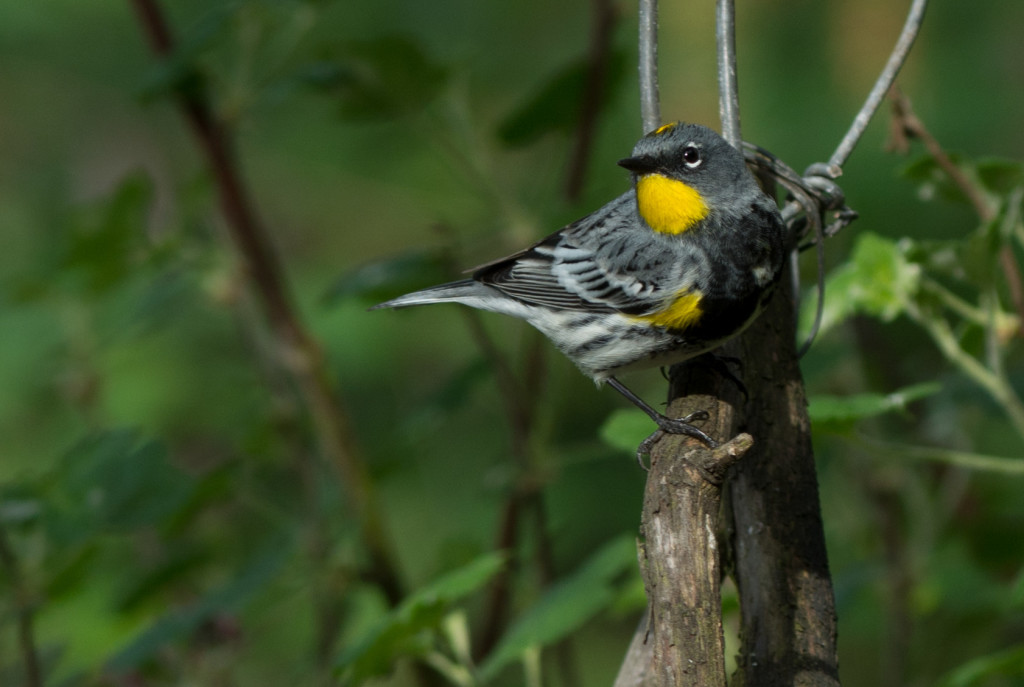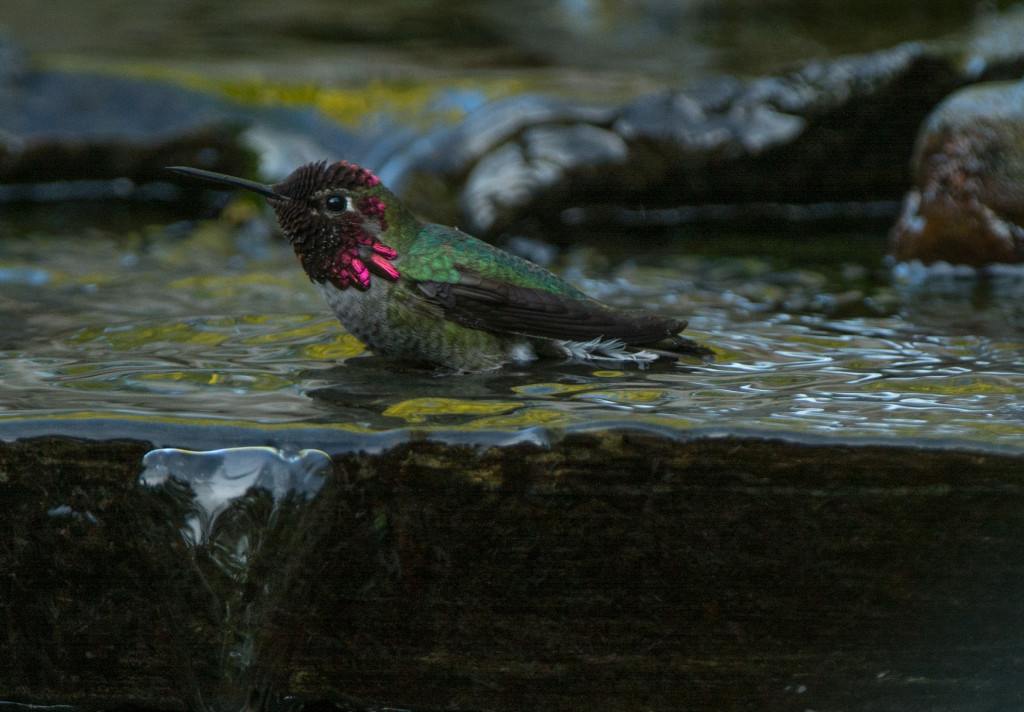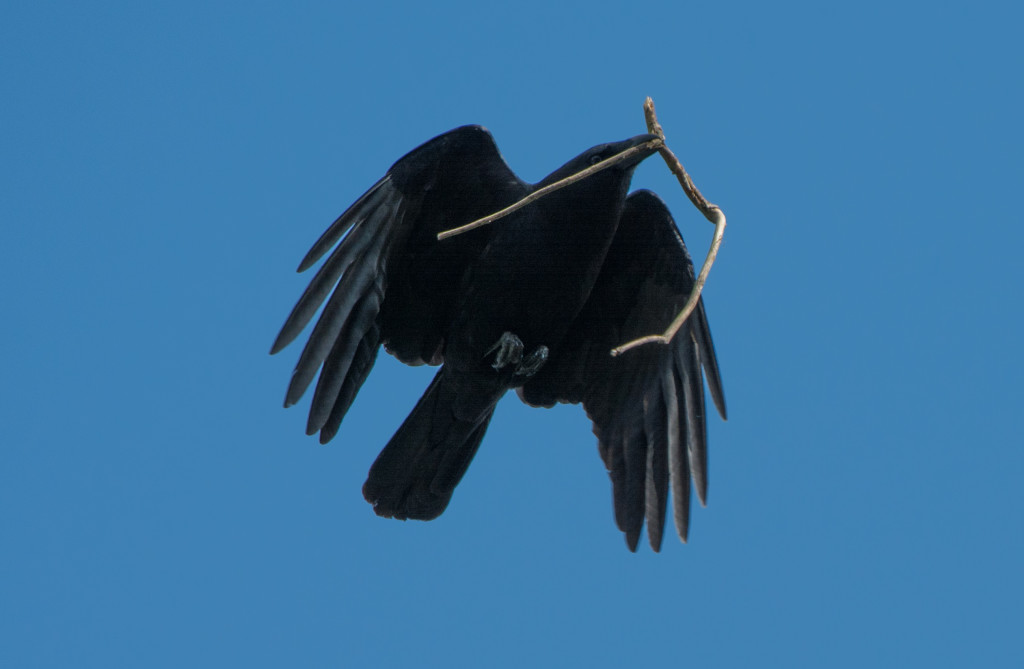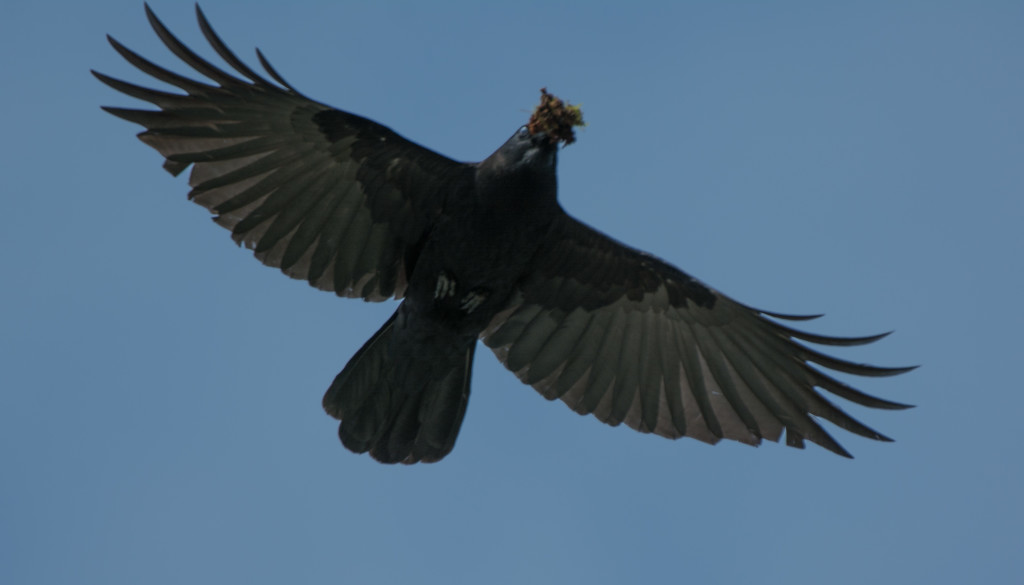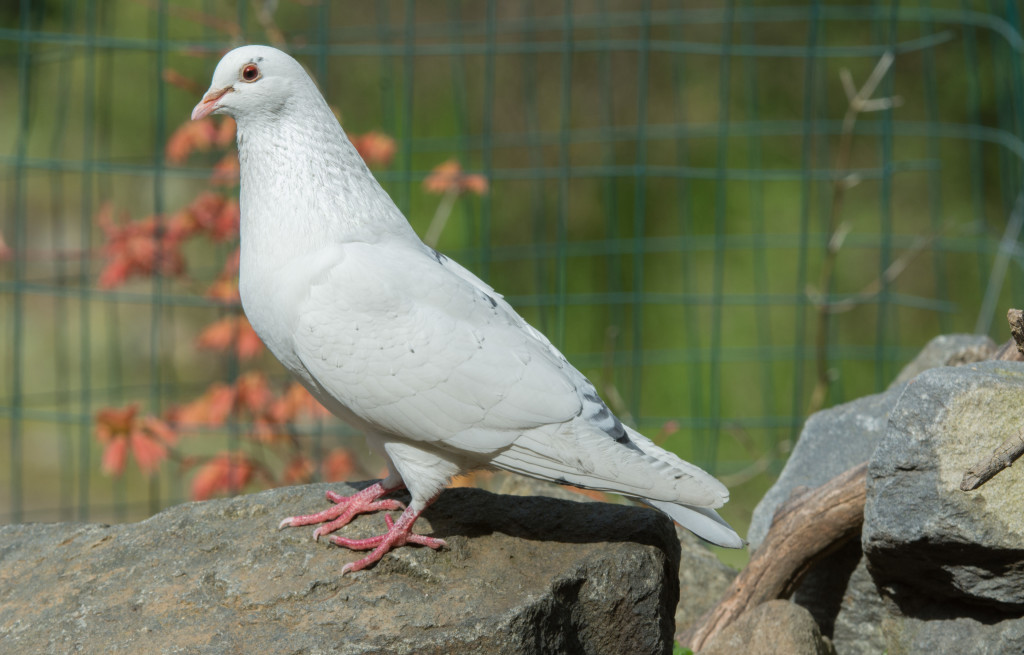I’ve spent considerable time in the yard lately watching for spring migrants, mainly warblers. So far I’ve had a lot of visits from Orange-crowned warblers and only two visits from one or more male Yellow-rumped warblers (Audubon’s). Unfortunately, for the next photo, I didn’t realize that I had my 200-400mm zoom lens adjusted to the low end of the telescopic scale when I took this (and other) photos, and it cost me dearly in at least two ways that I won’t take the time to explain here.
This next photo is of a male Anna’s hummingbird (presumably the one who spent the entire winter with us!) bathing in our watercourse. Unfortunately both species of hummingbirds have thus far shown a proclivity for bathing either early in the morning or in the evening when I must make compromises with shutter speed,and ISO.
We have a pair of crows building a nest in one of the tops of the fir trees in our front yard. It’s located very high in the top of the tree where I fear it could be at risk from ravens… and it’s so high there is probably nothing I can do if the ravens find it. Building progress went from sticks…
to moss gleaned from surrounding rock and some old bark mulch in the yard. This isn’t a very good photo, but it shows one of the crows on the way to the nest with a ball of the moss.
This Rock pigeon, affectionately known as ‘Whitey) has returned for the second year. It eats a lot of food and before the season is over it will probably be inviting a few friends, who are unwelcome because they eat a LOT of food meant for the other birds.
Finally, here is our latest visitor. So far it has limited itself to the outer regions of the yard which is mostly natural habitat, but if it moves much closer to the house we’re going to have a Mrs. MacGregor situation here. And if that isn’t bad enough, this morning it showed up with a friend. And where there are two rabbits there are bound to soon be more. Since the rabbits are relatively rare here, it probably signals a lack of coyotes.

